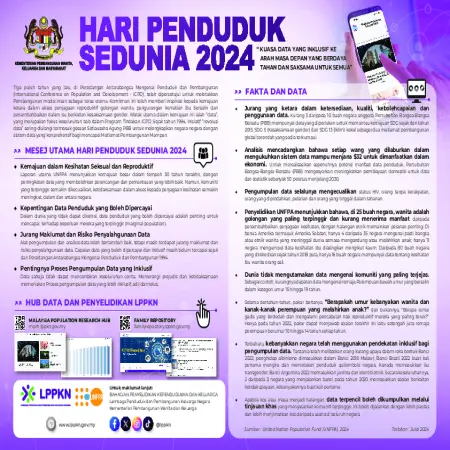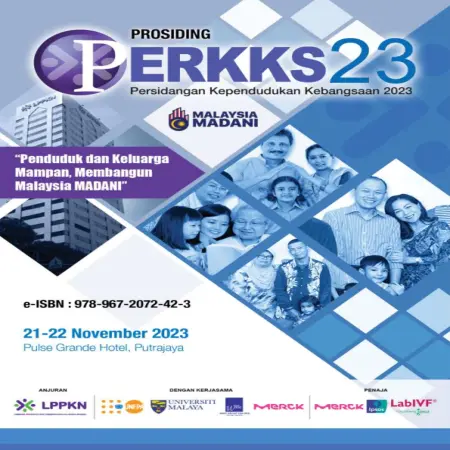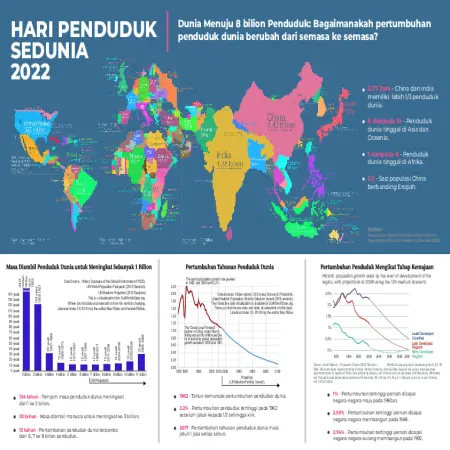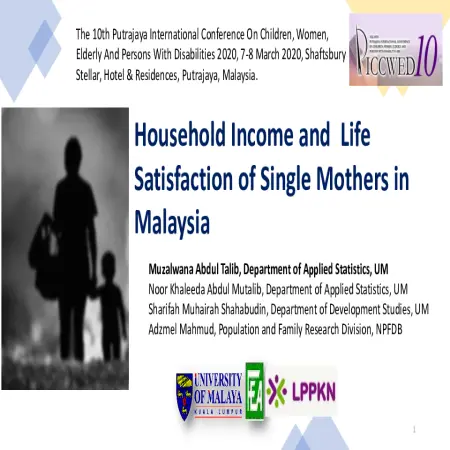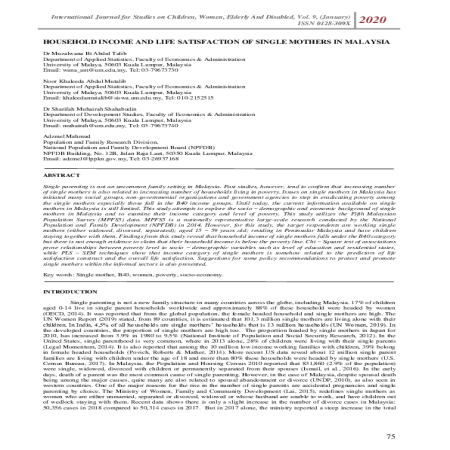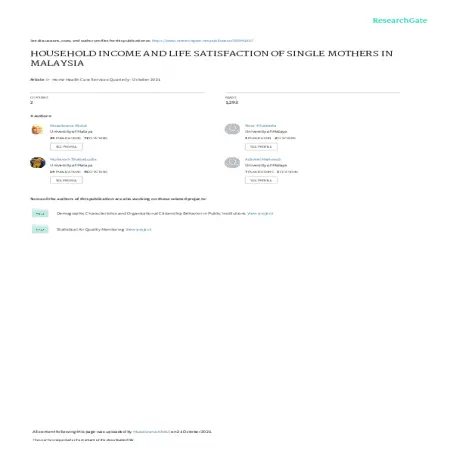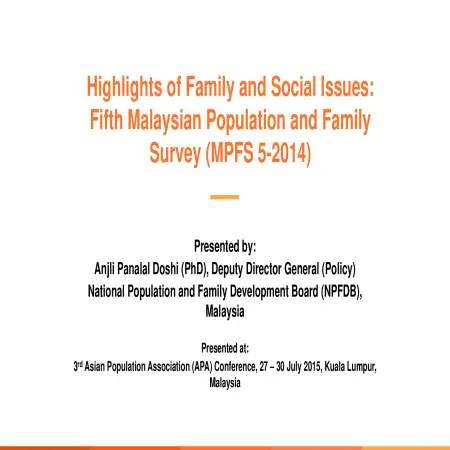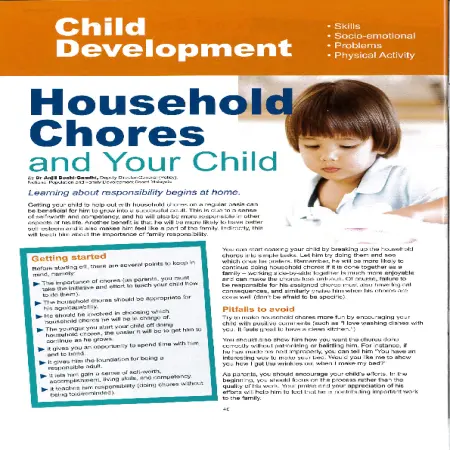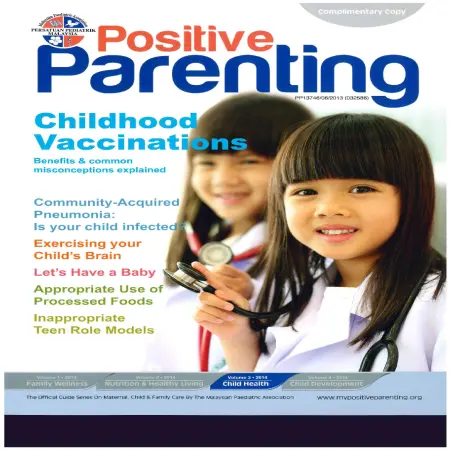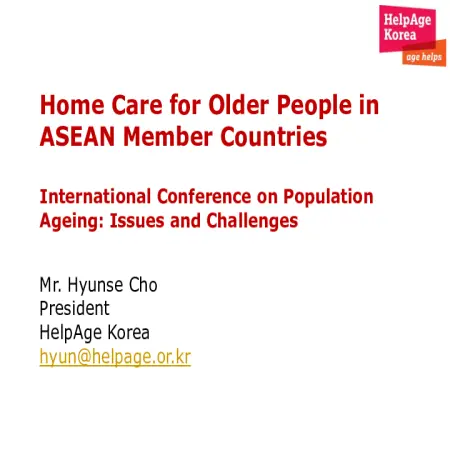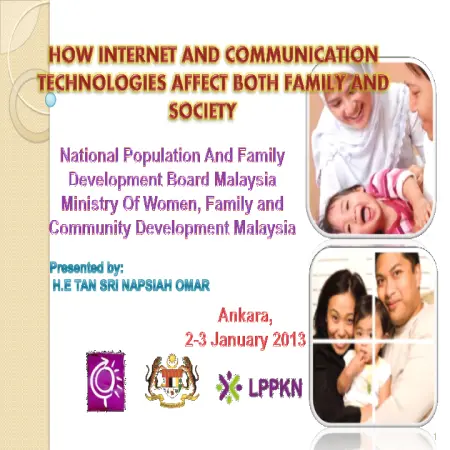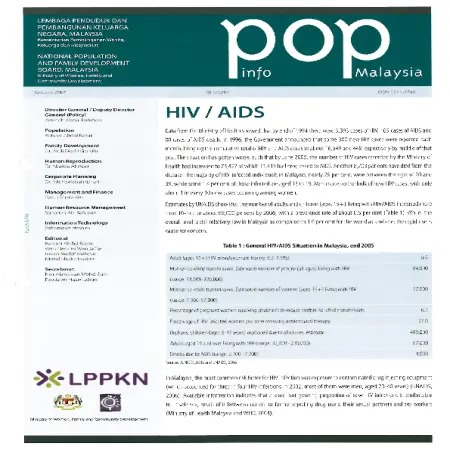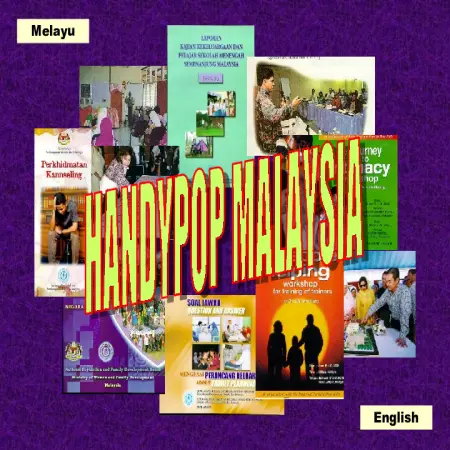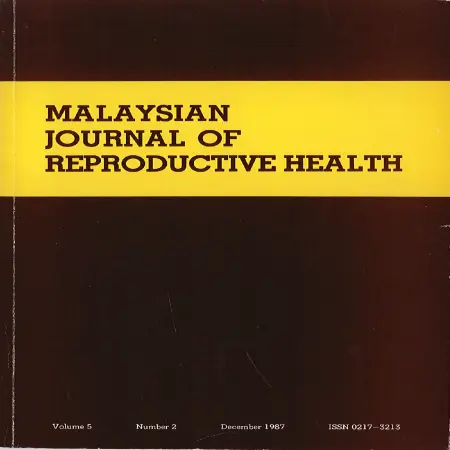Advanced Search
2024 (1)
|
|
Hari Penduduk Sedunia 2024 : “kuasa data yang inklusif ke arah masa depan yang berdaya tahan dan saksama untuk semua”
Item Type: Infographic
Editor:
Year: 00/07/2024
Abstract: Since 1994, the "data revolution" initiative has often been repeated including the UN Secretary General's call to equip countries with comprehensive data systems to achieve sustainable development goals. The main messages of World Population Day 2024 are progress in sexual and reproductive health, the importance of reliable population data, information gaps and the risk of data misuse, and the importance of inclusive data collection processes.
|
|
|
|
2023 (1)
|
|
Hubungkait antara cara gaya keibubapaan dan jenis trauma kanak-kanak dalam kalangan pelajar universiti di Malaysia
Item Type: Book Section
Editor:
Year: 00/12/2023
Abstract: According to the Social Welfare Department, children in need of care and protection according to Section 17[1][a] were injured and there were found a total of 2,074 cases recorded in 2020 and increased to 2,239 cases in 2021. Most cases occur in family institutions where children are under the care of a parent or guardian. Through this study, in addition to identifying the pattern of parenting styles in Malaysia and the status of childhood trauma level from the perspective of adolescent perception, the correlation between the two aspects was also studied.
|
|
|
|
2022 (1)
2020 (3)
|
|
Household income and life satisfaction of single mothers in Malaysia
Item Type: Conference or Workshop Item
Editor:
Year: 00/03/2020
Abstract: This study attempts to explore the socio –demographic and economic background of single mothers in Malaysia and to examine their income category and level of poverty. This study utilizes the Fifth Malaysian Population Survey (MPFS5) data. However, for this study, the target respondents are working single mothers (either widowed, divorced, separated); aged 15- 59 years old; residing in Peninsular Malaysia and have children staying together with them. Findings from this study reveal that household income of single mothers falls under the B40 category but there is not enough evidence to claim that their household income is below the poverty line. Chi – Square test of associations prove relationships between poverty level to socio – demographic variables such as level of education and residential states, while PLS – SEM techniques show that income category of single mothers is somehow related to the predictors of life satisfaction construct and the overall life satisfaction. Single mothers are already facing limited job market and reduced salary with their low level of educational attainment. Therefore, some suggested policy recommendations are to protect and promote single mothers involved in elementary occupations and to create more quality jobs to develop these women from the existing low-paid of the informal into the formal sectors.
|
|
|
|
|
|
Household income and life satisfaction of single mothers in Malaysia
Item Type: Article
Editor:
Year: 00/01/2020
Abstract: Single parenting is not an uncommon family setting in Malaysia. Past studies, however, tend to confirm that increasing number of single mothers is also related to increasing number of households living in poverty. Issues on single mothers in Malaysia has initiated many social groups, non-governmental organizations and government agencies to step in eradicating poverty among the single mothers especially those fall in the B40 income groups. Until today, the current information available on single mothers in Malaysia is still limited. This study attempts to explore the socio – demographic and economic background of single mothers in Malaysia and to examine their income category and level of poverty. This study utilizes the Fifth Malaysian Population Survey (MPFS5) data. MPFS5 is a nationally representative large-scale research conducted by the National Population and Family Development (NPFDB) in 2014. However, for this study, the target respondents are working single mothers (either widowed, divorced, separated); aged 15 – 59 years old; residing in Peninsular Malaysia and have children staying together with them. Findings from this study reveal that household income of single mothers falls under the B40 category but there is not enough evidence to claim that their household income is below the poverty line. Chi – Square test of associations prove relationships between poverty level to socio – demographic variables such as level of education and residential states, while PLS – SEM techniques show that income category of single mothers is somehow related to the predictors of life satisfaction construct and the overall life satisfaction. Suggestions for some policy recommendations to protect and promote single mothers within the informal sectors is also presented.
|
|
|
|
|
|
Household income and life satisfaction of single mothers in Malaysia
Item Type: Article
Editor:
Year: 00/01/2020
Abstract: Single parenting is not uncommon family setting in Malaysia. Past studies, however, tend to confirm that increasing number of single mothers is also related to increasing number of households living in property. Issues on single mothers in Malaysia has initiated many social groups, non-governmental organizations and government agencies to step in eradicating poverty among the single mothers especially those fall in the B40 income groups. Until today, the current information available on single mothers in Malaysia and to examine their income category and level of poverty. This study utilizes the Fifth Malaysian Population Survey (MPFS5) data. MPFS5 is nationally representative large-scale research conducted by the National Population and Family Development (NPFDB) in 2014. However, for this study, the target respondents are working single mothers (either widowed, divorced, separated); aged 15-59 years old; residing in Peninsular Malaysia and have children staying together with them. Findings from this study reveal that household income of single mothers falls under the B40 category but there is not enough evidence to claim that their household income is below the poverty line. Chi-Square test of associations prove relationship between poverty level to socio – demographic variables such as level of education and residential states, while PLS-SEM techniques show that income category of single mothers is somehow related to the predictors of life satisfaction construct and the overall life satisfaction. Suggestions for some policy recommendations to protect and promote single mothers within the informal sectors is also presented.
|
|
|
|
2015 (2)
|
|
Highlights of family and social issues : Fifth Malaysian Population and Family Survey (MPFS 5-2014)
Item Type: Conference or Workshop Item
Editor:
Year: 00/00/2015
Abstract: This slide Highlights of Family and Social Issues from finding of the Fifth Malaysian Population and Family Survey (MPFS 5-2014).
|
|
|
|
|
|
Household chores and your child
Item Type: Article
Editor:
Year: 00/00/2015
Abstract: Getting your child to help out with household chores on a regular basis can be beneficial for him to grow into a successful adult. This is due to a sense of self-worth and competency, and he will also be more responsible in other aspects of his life. Another benefit is that he will be more likely to have better self-esteem and it also makes him feel like a part of the family.Indirectly, this will teach him about the importance of family responsibility.
|
|
|
|
2014 (1)
|
|
Hassle free travel with your kids
Item Type: Article
Editor:
Year: 00/00/2014
Abstract: Pick a destination with something for everyone to enjoy. A tour may seem like an easy way to see everything, but take it easy and don’t pack your tour schedule with too many activities especially if you have babies and toddlers with you. The key is to remain flexible.
|
|
|
|
2012 (2)
|
|
Home care for older people in ASEAN member countries
Item Type: Conference or Workshop Item
Editor:
Year: 00/00/2012
Abstract: It is estimated that population of over 60 years in the South-Asia will triple between 2000 and 2050. By 2050, one out of four older people will be over the age of 80. This causes a growing need for welfare and health services for older people. However, the traditional family support system is under pressure due to the trend towards nuclear families, prevailing migration of children and increasing participation of women in the workforce. In most developing countries, the lack of appropriate programmes, policies and financing places further strain on an already stressed family system. In order to meet the growing needs of “CARE” services for older people in the community, HelpAge Korea have implemented HOME CARE project under the ROK-ASEAN Cooperation Project, which provides basic social and health related care services for older people who are poor and having difficulties of ADL at their home by volunteers. The HOME CARE project has been implemented in collaboration with government, non-government organizations and community people in 10 ASEAN member countries for 9 years from April 2003 to May 2012. The presentation shares the outcomes of HOME CARE project that has been successfully conducted in terms of developing localized model, strengthening GO & NGO collaboration for the expansion and influencing GO to integrate HOME CARE into policy framework. HOME CARE is one of community based care system to reduce the burden of the society and to improve the quality of life of older people. However, in responding to the need of vulnerable older people, there is no single solution but a series of care system is necessary. The presentation shares the future plan of ROK-ASEAN Cooperation Project on COMMUNITY BASED SERVICES of HelpAge Korea.
|
|
|
|
|
|
How internet and communication technologies affect both family and society
Item Type: Conference or Workshop Item
Editor:
Year: 00/00/2012
Abstract: This slide presentation shares about 65.1% Malaysians using the internet more than 9 hours. The population of internet users is 17.5 million out of a total of 28.6 million. Broadband penetration is 65% of the population in 2012. The positive impact on family is to enhance communication, strengthens relationships, enable parents to work from home and monitoring of children. Meanwhile, the negative impact on family are such as internet addiction, weakening family relationship, “narcissistic” behavior, excessive self-admiration especially among teens. Playing on the computer in the long term can lead to addiction, ill tempered nature and becoming antisocial. Children also can become more aggressive due to expose to violent games.
|
|
|
|
2007 (1)
|
|
HIV/AIDS
Item Type: Newsletter
Editor:
Year: 00/01/2007
Abstract: Data from the Ministry of Health showed that by end of 1994 there were 3393 cases of HIV, 105 cases of AIDS and 80 cases of AIDS death. In Malaysia , the most common risk factor from HIV infection was exposure to contaminated drug injecting equipment.
|
|
|
|
2002 (1)
1987 (1)
|
|
Hemorrheology and fibrinolytic response in women taking oral contraceptive pills
Item Type: Article
Editor:
Year: 00/12/1987
Abstract: A study was conducted on a total of 107 women attending the National Population and Family Development Board, Malaysia (NPFDB) Maternity Hospital, Kuala Lumpur. The subjects were divided into 3 groups. Group I and II consisted of woman on a low-dose combined estrogen and progestagen pills for a duration of 3-6 months and 1-2 year respectively. Group III was a control group consisting of women not on pills. A series of tests to evaluate hemorrheology and the fibrinolytic response were carried out. The results obtained showed no definite or significant difference in the two systems for all the three groups investigated. These findings are comparable to those reported by other investigators, implying relative safety of these pills in the local population.
|
|
|
|





